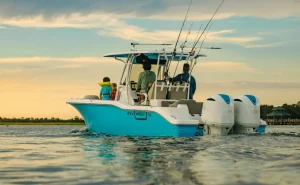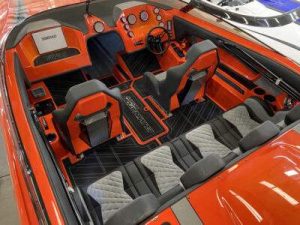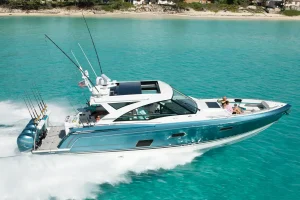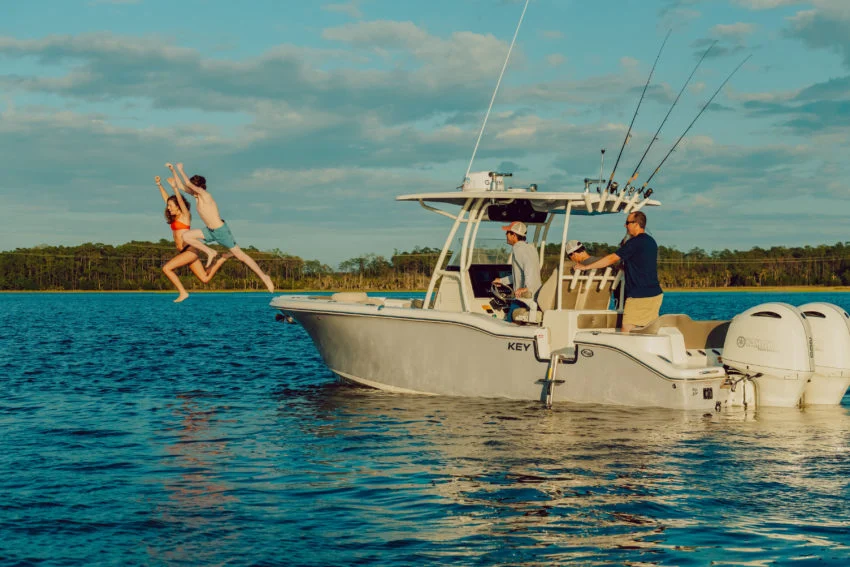Aluminum Fishing Boats
Aluminum fishing boats have become increasingly popular for anglers and boating enthusiasts alike due to their versatility, durability, and lightweight nature. Known for their corrosion resistance, aluminum alloy boats offer excellent performance in freshwater and saltwater environments, making them ideal for various types of fishing and leisure activities. These boats come in various sizes and designs, catering to the needs of many different anglers and providing a reliable mode of transport on the water.
With their low maintenance requirements and long-lasting endurance, aluminum fishing boats provide a sustainable and cost-effective solution for people looking to invest in a vessel that will stand the test of time. In addition, these boats can be customized and outfitted with a range of features to suit the specific needs of individual anglers. Their popularity has led to a wide range of available options on the market, making the process of purchasing and outfitting an aluminum fishing boat that much more accessible.
Key Takeaways
- Aluminum fishing boats are versatile, durable, and lightweight, making them ideal for various fishing environments.
- These boats require low maintenance and offer excellent performance in both freshwater and saltwater conditions.
- Customizable features and a wide range of available options make aluminum fishing boats accessible and adaptable to individual anglers' needs.
Understanding Aluminum Fishing Boats
Aluminum fishing boats are a popular choice among anglers due to their durability, lightweight nature, and low-maintenance requirements. Known for their excellent quality and performance, these boats have become a staple in both freshwater and saltwater fishing environments.
With a focus on innovation, manufacturers have designed aluminum boats to meet the varying needs of fishermen. Advances in construction methods and materials have led to a significant improvement in the overall strength and longevity of these boats. The use of high-quality aluminum alloys not only ensures the structural integrity of the boat but also contributes to its corrosion-resistant properties.
In terms of performance, aluminum fishing boats are known for their ability to navigate a wide range of water conditions with ease. The lightweight nature of aluminum allows for faster acceleration and improved fuel efficiency, while their inherent buoyancy contributes to better stability. Furthermore, the versatile design of these boats enables fishermen to access shallow water areas or narrow passageways where other materials may struggle.
One of the key advantages of aluminum boats over their fiberglass counterparts is their ease of maintenance. Typically, aluminum boats require less upkeep as they are more resistant to the damaging effects of the sun and water. Additionally, minor repairs can be done without the need for specialized equipment or expertise, making them a cost-effective option for many anglers.
In summary, aluminum fishing boats are a reliable and efficient option for both recreational and professional fishermen. Their innovative construction, superior quality, and high-performance capabilities make them an excellent choice for those looking to invest in a durable and low-maintenance vessel. With the continued advancement of aluminum boat technology, it is clear that these boats will remain a popular option for anglers worldwide.
Types Of Aluminum Fishing Boats
Aluminum fishing boats are popular due to their durability, lightweight construction, and ease of maintenance. They offer a wide range of options for anglers and boating enthusiasts alike. This versatile boat category includes several types, each designed to cater to specific needs and styles of fishing.
Bass Boats
Bass boats are tailored for anglers who target bass and other freshwater fish species. These boats typically feature a wide beam, low profile, and a high-performance outboard engine. They also have swivel seats and a large casting deck, making it easy for anglers to cover a lot of water and cast towards shorelines or structures. Most aluminum bass boats come equipped with essential fishing gear like tackle storage compartments, rod holders, and fishfinders.
Jon Boats
Jon boats are simple, flat-bottomed aluminum boats designed for versatility and ease of use. They are lightweight, making them easy to transport and maneuver in shallow waters or tight spaces. Jon boats are commonly used in small rivers, lakes, and ponds for fishing, but can also be utilized for other recreational activities like duck hunting. Anglers appreciate their stable platform and open design, which offers plenty of room for gear, as well as unrestricted casting and fishing access.
Deep V Boats
Deep V boats are built to handle rough waters and larger bodies of water like offshore fishing grounds. With their distinctive V-shaped hull, these boats are designed to cut through waves and provide a smooth ride in various conditions. Deep V aluminum fishing boats offer anglers more space, larger fuel capacity, and increased stability compared to other boat types. They often include features such as walk-around cabins, high gunwales, and ample storage for fishing equipment.
Classic Series
The Classic Series is a line of versatile, multi-purpose aluminum fishing boats that embody traditional designs with modern features. These boats are known for their stability, durability, and fuel efficiency. Boasting large open decks and comfortable seating arrangements, the Classic Series caters to anglers seeking a functional fishing platform with a touch of timeless appeal.
RT Series
RT Series boats are designed to support a wide range of fishing activities, with a focus on ruggedness and durability. These boats use thicker aluminum materials and are built with reinforced hulls to withstand demanding conditions. The RT Series also incorporates innovative features such as an easy-clean, non-slip floor surface, wide gunwales, and multiple rod holders. Ideal for both freshwater and saltwater applications, these boats cater to serious anglers looking for a reliable, tough, and high-performance fishing vessel.
Activities With Aluminum Fishing Boats
Fishing
Aluminum fishing boats are known for their lightweight, durable, and versatile features, making them ideal for various fishing activities. Equipped with casting decks and rod storage, they are perfect for anglers targeting different species of fish. The shallow draft allows them to navigate and access hard-to-reach fishing spots, increasing the chances of a successful catch.
Skiing and Tubing
Besides fishing, aluminum boats can also be used for skiing and tubing. Their lightweight nature and powerful engines enable them to glide effortlessly across the water, providing an enjoyable experience for watersports enthusiasts. To ensure safety and convenience, aluminum fishing boats can be equipped with tow bars and ski pylons, making it easy to attach skis and tubes for a day of fun on the water.
Adventure
Another appealing aspect of aluminum fishing boats is their suitability for a variety of adventure activities. Due to their durability and low maintenance, they make excellent companions for exploring remote waterways, islands, and coastlines. The ruggedness of aluminum fishing boats allows them to withstand rough conditions, making them ideal for adventurous expeditions. Their fuel efficiency and range capabilities further enhance their suitability for extended periods on the water.
In conclusion, aluminum fishing boats are versatile vessels that cater to a range of activities, including fishing, skiing, tubing, and adventure. Their lightweight, resilient design and low maintenance make them an attractive option for boating enthusiasts looking for an all-in-one watercraft.
Trolling With Aluminum Fishing Boats
Trolling is a popular and effective fishing technique often used for targeting species such as walleye and panfish. Aluminum fishing boats are considered a top choice for this method due to their lightweight construction, durability, and ease of maneuverability. In this section, we will discuss the advantages of using aluminum fishing boats for trolling and how to optimize trolling performance with the right trolling motor.
Aluminum boats are known for their ability to glide smoothly through the water with minimal resistance, making them ideal for maintaining the slow and steady pace required for successful trolling. Additionally, their rust-resistant properties allow for extended use in both freshwater and saltwater environments, ensuring a long-lasting investment for anglers.
When it comes to choosing an appropriate trolling motor for an aluminum boat, power, thrust, and efficiency should be taken into consideration. A well-matched trolling motor ensures that the boat maintains a consistent speed and direction, allowing anglers to focus on fishing rather than constantly adjusting their boat's position. Opting for an electric trolling motor with variable speed settings can save battery life and reduce noise, increasing the likelihood of catching elusive fish species.
For walleye and panfish fishing, selecting a trolling motor with the right amount of thrust is crucial. These species can often be found in shallow waters, requiring a trolling motor that can operate efficiently in these conditions without disturbing the fish. A bow-mounted trolling motor is generally preferred for this purpose, as it provides better control and maneuverability in tight areas.
In conclusion, aluminum fishing boats offer numerous advantages for trolling, from their lightweight construction to their corrosion-resistant properties. By selecting the appropriate trolling motor and optimizing boat setup, anglers can improve their chances of catching walleye, panfish, and other target species with ease and confidence.
Buying An Aluminum Fishing Boat
Dealing With A Dealer
When purchasing an aluminum fishing boat, it is essential to find a reputable dealer with experience and knowledge. Visit the dealer's location, inspect the boats on display, and ask as many questions as necessary to ensure that they understand your needs and preferences. A trustworthy dealer, such as a Tracker® authorized dealer, will be able to provide guidance and recommendations based on your fishing style and budget.
Understanding Financing
Financing an aluminum fishing boat can be a significant investment, so it's crucial to understand your options. Reach out to your dealer or financial institutions to explore available financing plans. Compare interest rates, down payment requirements, and loan terms to find the most suitable option for you. Keep in mind that the boat's total cost may include additional expenses, like taxes, registration fees, and insurance.
- Interest Rate: The percentage of the loan amount charged by the lender.
- Down Payment: The initial payment made when purchasing the boat.
- Loan Term: The length of time you have to repay the loan, typically ranging from 2 to 15 years for boat loans.
Finding A Custom-Fit Trailer
A custom-fit trailer is essential for transportation and storage of your aluminum fishing boat. Ensure that the trailer matches your boat's size, shape, and weight. Aluminum trailers are preferable due to their lightweight and resistance to corrosion. Consult with your dealer to find a trailer designed specifically for your boat model, such as a Tracker® compatible trailer. Additionally, verify that the trailer adheres to local regulations and safety standards.
Here are some factors to consider when selecting a custom-fit trailer:
- Weight Capacity: The trailer must support the combined weight of your boat, motor, and gear.
- Bunk or Roller System: Bunk trailers provide better support for your hull, while roller trailers make launching and loading easier.
- Brake System: Depending on your boat and trailer's weight, you may need a trailer with a proper braking system to ensure safe towing.
Taking the time to research dealers, financing options, and custom-fit trailers will help guarantee a smooth and successful purchase of your ideal aluminum fishing boat.
Maintaining Your Aluminum Fishing Boat
Aluminum fishing boats are highly valued for their lightweight build, corrosion resistance, and low maintenance requirements. However, proper maintenance is crucial to ensure durability and prolong the boat's lifespan. This section offers a few essential tips for maintaining your aluminum fishing boat.
One of the critical aspects of maintaining an aluminum fishing boat is periodic cleaning. Clean the boat thoroughly, especially after exposure to salty water, as it can lead to corrosion if not removed in time. Use a soft sponge or brush and a gentle, marine-safe cleaning agent to clean the surfaces. Pay close attention to the underwater parts and areas like the keel, propeller, and engine cowling, where dirt, debris, or algae can accumulate.
Despite aluminum's resistance to corrosion, it is essential to keep an eye on the boat's integrity, especially when in contact with other metals more susceptible to corrosion. Remember to inspect your boat frequently, look for incipient corrosion, and address it quickly to avoid potential damage to the aluminum. It is recommended to use protective coatings or paints specifically made for aluminum boats, and considering anodic protection if your boat is frequently in contact with corrosive waters.
In addition to external maintenance, it is essential to monitor and maintain the boat's internal components, such as the engine, steering, and electrical systems. Keep the engine in top shape by changing the oil and filter, checking spark plugs, and inspecting the fuel system for leaks or cracks. Perform regular maintenance checks on the boat's steering system, ensuring it is well-lubricated and working smoothly. Electrical systems should be examined for wear, exposed wiring, and loose connections.
Finally, when storing your aluminum fishing boat, protect it from the elements by covering it with a tailor-made cover or storing it indoors if possible. This will help safeguard the boat's surfaces from dirt, UV rays, and precipitation, keeping it in peak condition for your next fishing adventure.
By following these maintenance guidelines, you can ensure your aluminum fishing boat remains in optimal condition for years to come, providing you with countless enjoyable fishing trips on the water.
Frequently Asked Questions
What are the common differences between aluminum and fiberglass boats?
Aluminum boats are typically lighter, more durable, and less expensive than their fiberglass counterparts. They also have a higher resistance to corrosion, especially in saltwater environments. In contrast, fiberglass boats are generally heavier, often resulting in a smoother ride, and are available in a wider range of shapes and sizes. Additionally, fiberglass boats have a more aesthetically pleasing finish, with a glossy look that is often preferred by owners.
Is maintenance easier for aluminum boats compared to others?
Yes, maintenance for aluminum boats is generally easier compared to other types of boats, particularly fiberglass ones. Aluminum boats do not require painting or waxing, making them relatively low-maintenance. Additionally, due to their resistance to corrosion, they can better withstand harsh weather conditions and saltwater exposure.
How do aluminum bass boats perform in comparison to fiberglass alternatives?
Aluminum bass boats are known for their light weight and maneuverability, making them ideal for shallow or narrow waters where a fiberglass boat might struggle. They also offer improved fuel efficiency and typically have a shallower draft, allowing them to access fishing spots that may be unreachable for heavier fiberglass boats. However, fiberglass bass boats are often preferred for a smoother and more stable ride, as well as their enhanced ability to handle larger motors and higher top speeds.
What factors should be considered when choosing an aluminum fishing boat?
Some important factors to consider when choosing an aluminum fishing boat include its size, weight, and hull shape, as these will impact the boat's overall performance and fishing capabilities. Additionally, consider the boat's fuel efficiency, storage capacity, and overall durability when making a decision. It's also essential to evaluate the intended use of the boat, such as the type of water and fishing conditions it will be used in, to ensure that the chosen boat is suitable for the intended purpose.
Which manufacturers are known for producing high-quality aluminum boats?
Numerous manufacturers are known for producing high-quality aluminum boats. Some notable examples include Tracker, Lund, Alumacraft, and Crestliner. Each of these manufacturers offers a range of models designed for different types of fishing and boating activities, so it's essential to research several brands to find the best match for your specific needs.
Do aluminum boats have any specific usage restrictions or limitations?
While aluminum boats are versatile and suitable for various conditions and activities, they are generally best-suited for freshwater and inshore fishing due to their lighter weight. However, some larger and more robust aluminum boats can handle offshore conditions. Additionally, aluminum boats may not provide as smooth or comfortable a ride as fiberglass boats, particularly in rough water, making them less suitable for those who prioritize ride comfort during fishing trips.
Specifications
Featured Brands
All Brands for Aluminum Fishing Boats Boats
- Allied
- Alumacraft
- Alumaweld
- Alweld
- Avid
- BOULTON POWERBOATS
- Bass Tracker
- Boulton
- Buster
- Caymas
- Crestliner
- Custom
- Custom Weld
- Duckworth
- Duranautic
- Edge Duck Boats
- Excel
- Express
- Extreme Boats
- Fish Rite
- Fisher
- G3
- Gator
- Havoc
- Hewes
- Hewescraft
- KingFisher
- Klamath
- Legend Craft
- Lowe
- Lund
- MirroCraft
- North River
- Polar Kraft
- Princecraft
- Pro
- Pro Angler XL
- Pro Guide
- Prodigy
- Raider
- Ranger
- Reaper
- Reaper Boats
- Rh Boats
- Sea Nymph
- SeaArk
- Silver Streak
- Smoker Craft
- Spartan
- Stabicraft
- Starcraft
- Starweld
- Thor
- Thunder Jet
- Tracker
- Triton
- Vexus
- War Eagle
- WeldBilt
- Weldcraft
- Xpress
- Xtreme
- Yamaha Boats
- pro team


















































